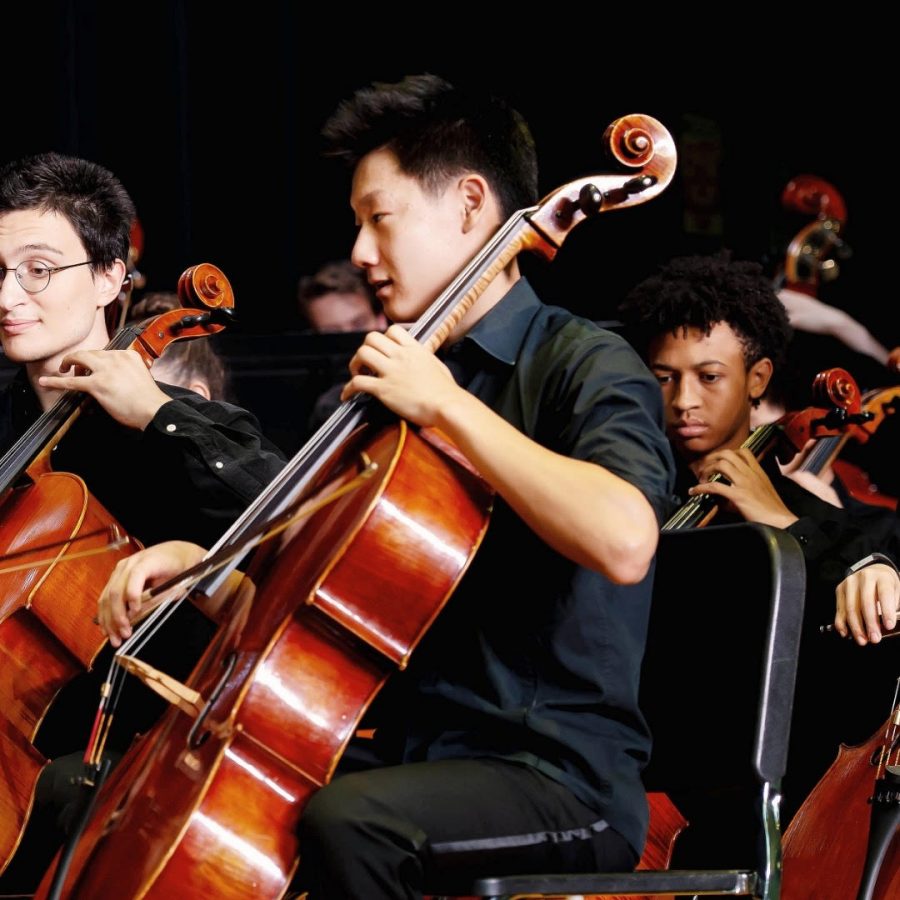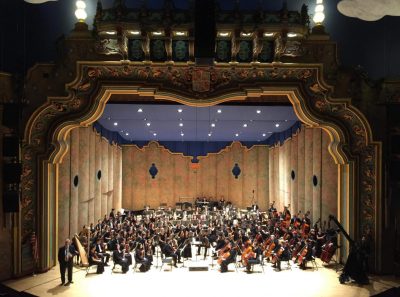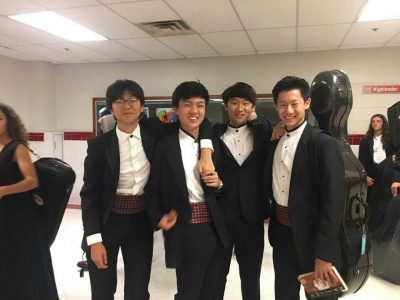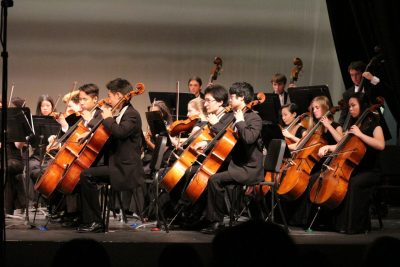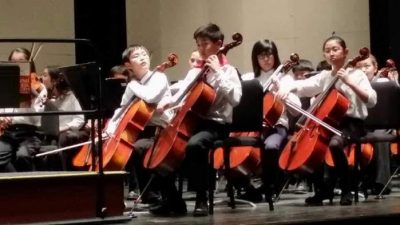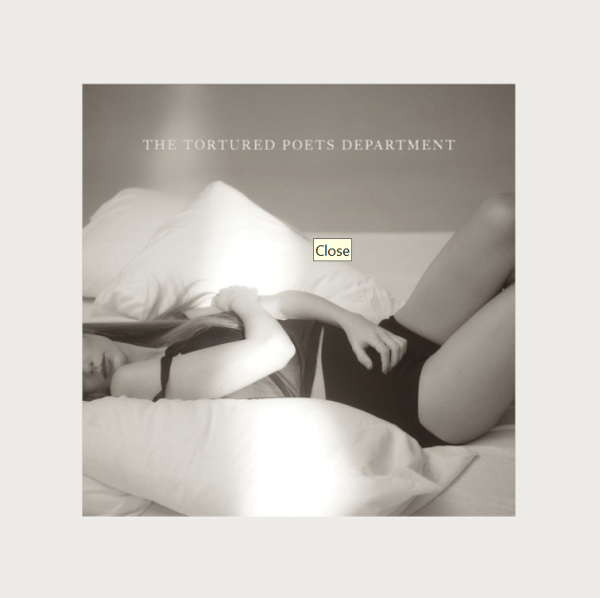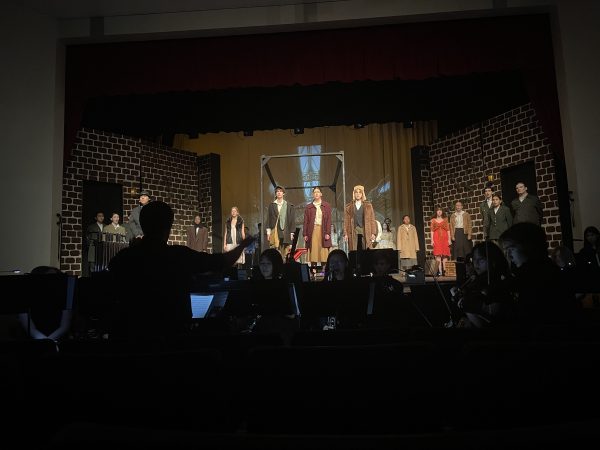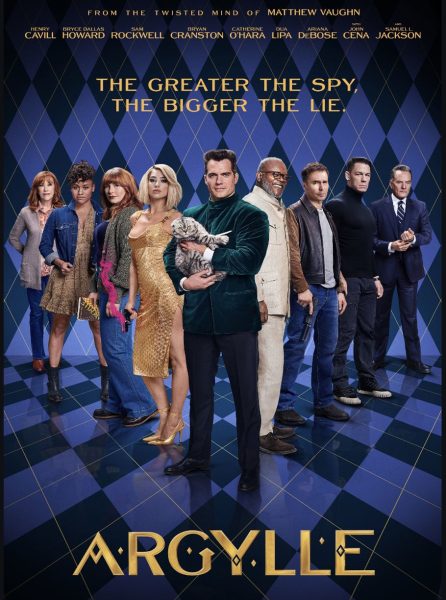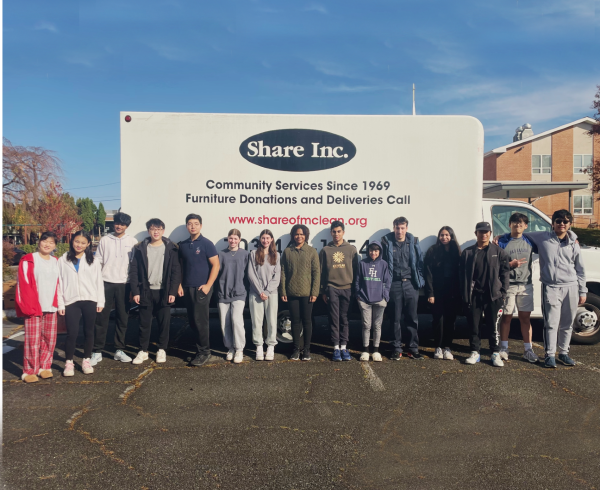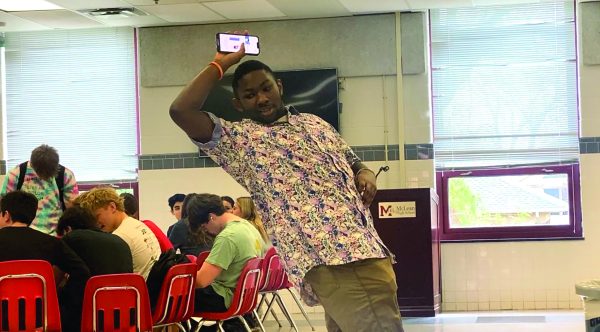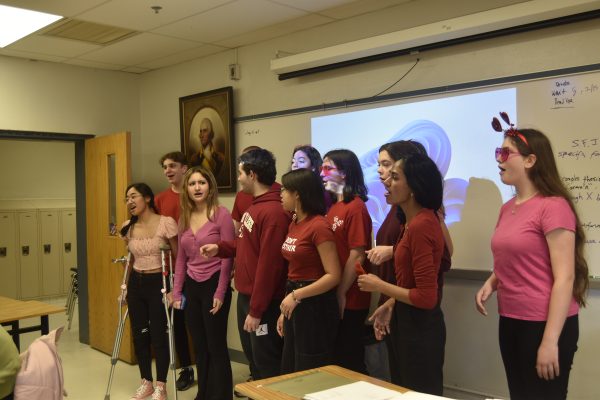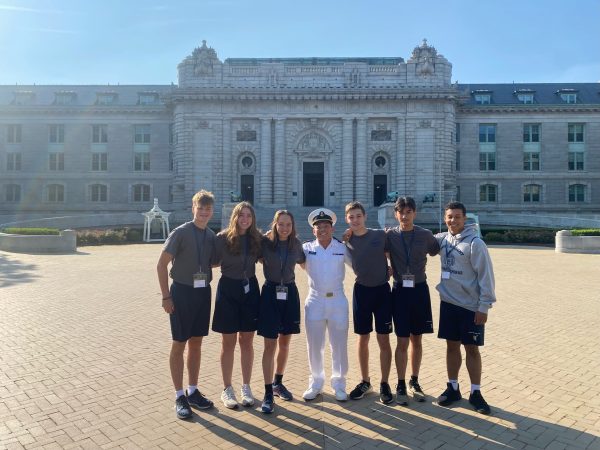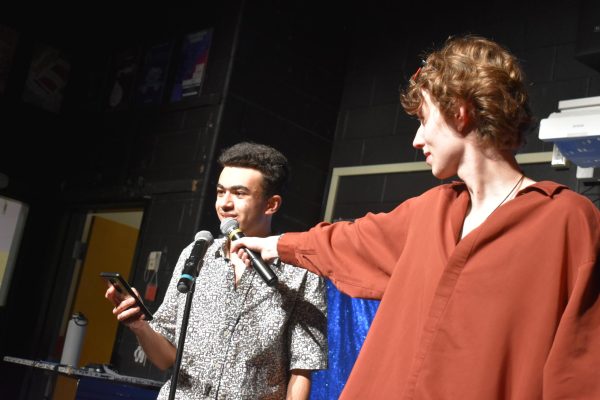Han-dling musical success
Steve Han excels at playing the cello
Han leads the cello section of Philharmonic Orchestra in a school concert during his junior year. This year, he will play the Haydn Concerto in C Major as his senior solo.
Senior Steve Han started playing cello after he heard his cousin playing it at a family reunion.
“It might sound weird if I just say a natural connection, but that’s what I felt. More than the violin or anything else,” Han said.
Han experimented with the cello on his own for a year.
“To be honest with you, I kind of hated it when I started. I did it for a year, and then I just took a whole year off,” Han said.
Han returned to the cello when he was seven. He started taking private lessons. In third grade, he learned the Haydn concerto that he’s currently playing for his senior solo.
“I’m glad I stuck with cello because now there’s something to do and something I like,” Han said. “It’s a class I take, but it’s definitely nothing to stress about…I do it because I love it.”
When he started, Han practiced around 30 to 45 minutes a day. Han gradually increased his practice time to one hour during the school year and two hours in the summer.
“They always say practice makes perfect, so that’s what I did. Nobody really forced me to do it,” Han said.
Han is thankful for his parents’ support.
“Private lessons are not cheap. But they’ve always supported me because I like it; I love it,” Han said.
Still, Han has faced his share of lows.
“Practicing for competitions is kind of scary, really challenging and boring because it’s usually a whole year’s worth of preparation just for that one performance,” Han said.
As a freshman, Han landed first stand for Regionals, fifth chair for States, and qualified for Nationals.
“That’s when I thought I was really good. But I didn’t feel really good. I was like, ‘Oh yeah, maybe I can do this,” Han said.
Han recalls feeling nervous during his auditions.
“For the State auditions, it’s a really big Convention Center, and it’s a whole black screen you audition into. It’s very intimidating; I was shaking throughout my performance,” Han said.
Throughout his sophomore and junior years, Han had trouble juggling academics, cello, and swimming.
“He had a difficult time trying to get his priorities straight, like whether he wanted to continue swimming or whether he wanted to pursue music,” Steve’s sister senior Grace Han said.
As a result, Han did worse at Regionals and States.
“That frustrated me, but I realized I can’t really be good at everything. I just have to focus on one thing,” Han said.
It was easier to concentrate on swimming.
“Practicing for an hour or two straight, it’s definitely not easy,” Han said. “That’s one of the reasons why I chose to focus on swimming.”
There were other reasons for Han’s shift. He didn’t see noticeable progress for cello, as opposed for swimming, where he noticed his progress everyday.
“Those aspects I really disliked [about] cello in a sense, but after I got over some areas, music was something I wanted to enjoy—something I enjoy,” Han said. “So that’s why I’ve done it since I quit private lessons.”
Viewing cello as a hobby has made it more relaxing for Han, especially compared to the competitive nature of swimming.
“You go into three-hour practices a day just for the sole mindset of getting better, and you really have to push yourself. But for cello, I really like how you can just overcome the small details and then have no competitive anxiety,” Han said.
Before he quit private lessons, Han was taught by John Moran and the Peabody Conservatory of Music.
“I [like] him because he’s not really forceful about anything, [and] he really encourages you to learn the performance basics,” Han said.
With Moran, Han learned little things to help control the performance.
“Just the way you move along with the music, like body language, that’s what he calls it,” Han said. “A technique where you work with your cello. It’s hard to move with your cello because it’s very fixed, unlike the violin, where you can move freely.”
Murray has also taught him tips for auditions.
“[I learned] when you are given a scale, [how] to mentally process that and go through it in your head first, like the tempo and all the notes…and then start. Or going slower in the sight readings, taking the maximum time because if you’re slow, they’re going to ask you later on to make it faster. But if it’s too fast and you mess up, you don’t have a second chance,” Han said.
In addition to being a detailed teacher, Moran is also one of Han’s biggest role models.
“He’s the best cellist I’ve ever seen—the best teacher I’ve ever seen. He’s allowed me to be humble in a sense because he’s a really humble person as well,” Han said.
Starlet Smith, Han’s orchestra teacher, has noticed this about him.
“I’ve always been amazed at his playing because even in sixth grade, he was playing stuff that a lot of times college students would play,” Smith said. “[And] he’s always been so humble about it. He knows he’s a good player, but he doesn’t show off, which is a really good quality in a leader.”
As a section leader in Philharmonic orchestra, Han has a standard to uphold.
“Everyone at this school expects me to be good, especially the people in the orchestra,” Han said. “It’s still competitive because there are all these cellists in Philharmonic that are really pushing. They still love cello as much as I do.”
In class, Han is a responsible student.
“I’ve had him as the section leader of the cellos for a few years now. He’s just extremely diligent, and he has really good focus in class.
In addition to his recognition in the States and Regionals orchestras, Han has also been awarded Musicianship and Leadership awards in his freshman and sophomore years in Philharmonic orchestra. This year, he was voted as the first orchestra president of Tri-M.
“I find that it’s one thing to be a really awesome musician—you can be really talented, you can work really hard, but [you also] have to be able to work with other people…I think that’s something that stands out about Steve, that he seems well respected by his peers,” Smith said.
For Han, one of the best parts of playing the cello is the friends he’s made through music.
“When I went to the National Orchestra thing down in Orlando, I met students from Alaska, Germany, Texas, Nebraska. I was totally able to experience something new…It was a lot different than the States and Regionals here, where you’re just playing with people around the area,” Han said.
This year, Han will play the Haydn Cello Concerto in C Major as his senior solo. He’s trying to take private lessons again in the spring to prepare.
“It’s a piece I’ve played before, but I just have to get back to the basics again for cello for a very good performance.”
Han knows that he will continue playing the cello.
“I definitely really want to do and be part of an orchestra in college…[and] in the future as my hobby, when I’m working, stuff like that.”
Your donation supports the McLean High School's independent, award-winning news publication.



